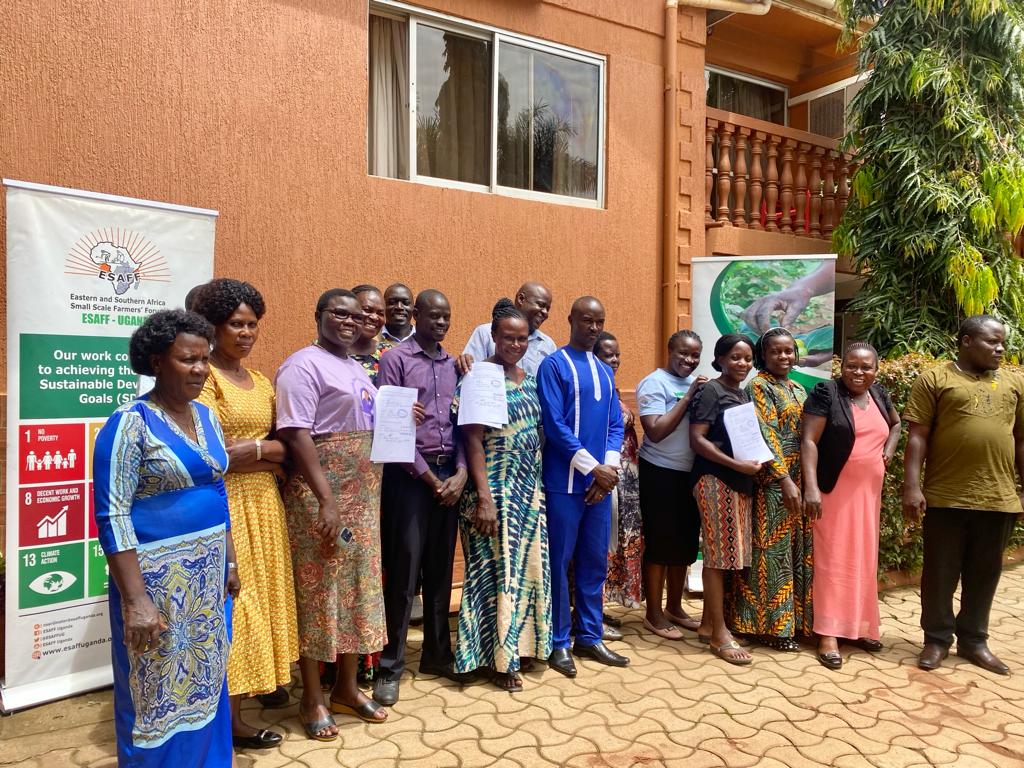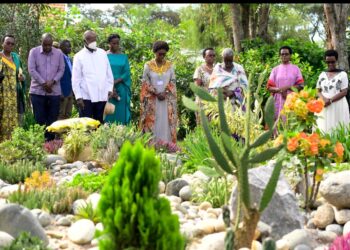Lira University in collaboration with Eastern and Southern Africa Small Scale Farmers Forum (ESAFF Uganda), have joined forces to pioneer a transformative path for ecological agriculture courses within higher learning institutions.
This strategic collaboration, solidified through the signing of a Memorandum of Understanding (MoU) at Eureka Place Hotel in Ntinda, Kampala on November 10th, signifies a significant leap forward in reshaping the landscape of agricultural education.
The initiative, driven by a shared commitment to fostering ecologically sound farming practices, aims to introduce comprehensive study programs that delve into agroecology, and climate-resilient farming methodologies.
The collaboration took shape during Lira University’s engagement with ESAFF Uganda and Lund University in a study focused on mobilizing small-scale farmers for sustainable agricultural production in Sub-Saharan Africa.
Recognizing climate change as a critical hurdle to agricultural sustainability, both institutions have set their sights on designing curricula that directly address this global concern.
Hakim Baliraine, the National Chairperson of ESAFF Uganda, underscored the importance of this partnership, citing its roots in the organization’s dedication to implementing the Ecological Organic Agriculture Initiative (EOA-I) endorsed by regional heads of state in 2012.
He explained that this collaboration entails thorough engagement and the development of methodologies between Lira University and ESAFF Uganda. He stated that the eventual endorsement of these programs by the National Council for Higher Education (NCHE) will set center stage for their adoption by other institutions of higher learning in Uganda.
Baliraine revealed, “We are currently in the preliminary stages, with Lira University taking the lead in the technical aspects, supported by ESAFF Uganda both financially and morally. The curriculum’s eventual endorsement by the National Council for Higher Education is crucial for its integration into national guidance.”
Agroecology Study Programs Combatting Climate Change: Insights from Gad Kwizera
Gad Kwizera, the Assistant Lecturer of Agriculture at Lira University emphasized the need to develop human resources capable of navigating the complexities of climate change within the agricultural sector.
The proposed study programs, he said include a Postgraduate Diploma, an Undergraduate Degree (Bachelor of Agroecology), and a Master’s Degree in Agroecology, targeting a spectrum of learners from entry-level undergraduates to seasoned professionals.

He affirmed, “Climate change is a cross-cutting concern and a hot topic globally. If we don’t address it in our curricula, sustainable agricultural production will continue to face challenges.”
Kwizera clarified the nomenclature of the programs, saying, “Some may refer to it as a Bachelor of Organic Agriculture, but in essence, we term it Agroecology. This choice is deliberate, aligning with the broader concept of ecological sustainability in agriculture.”
Highlighting the career prospects for agroecology graduates, Kwizera elucidated that they will be the technical experts addressing climate change in agriculture. He also clarified that the expertize they will receive after training will enable them to find employment in various government Ministries, Departments and Agencies (MDAs) such as the Ministry of Agriculture, Animal Industry and Fisheries (MAAIF) and Zonal Agriculture Research and Development Institutes.
Additionally, he said that private organizations focusing on improving livelihoods through climate-resilient agriculture will seek their expertise.
Given Uganda’s heavy reliance on agriculture, Kwizera emphasized that these graduates will play a pivotal role in enhancing farmer production, and will also teach in other educational institutions.
In an interview, Masudio Margaret, the Chairperson of the Women’s Forum at ESAFF Uganda and a small-scale farmer from Adjumani district, expressed that this collaboration marks the beginning of the end for conventional farming, which she said has had detrimental impacts on food security and the local climate.
“The majority of our extension workers currently undergo training primarily in conventional methods. We are optimistic that the Uganda National Curriculum Development Center (NCDC) will integrate agroecology studies into curricula across all learning levels”
“This implies that the upcoming generation will be equipped with the concepts, principles, and practices of agroecology, paving the way for a gradual transition away from conventional farming,” said Margaret.
While Lira University lays the groundwork for these pioneering programs, the envisaged ripple effect could see a paradigm shift in how agriculture is taught, understood, and practiced in the higher education landscape, ultimately contributing to a more sustainable and resilient agricultural future for the region.
Do you have a story in your community or an opinion to share with us: Email us at editorial@watchdoguganda.com













